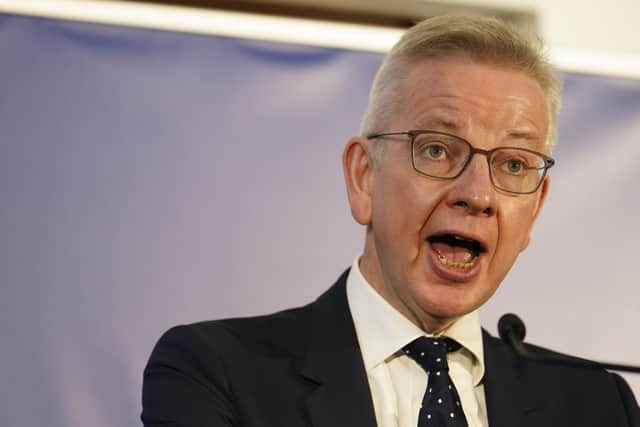Transparency over land trusts will tackle corruption in the property sector: Michael Gove
Transparency about land ownership is therefore essential to make our society work effectively. In its absence, injustices, corruption and crime flourish.
Since 2010, the United Kingdom has taken steps to make our business environment more transparent.
Advertisement
Hide AdAdvertisement
Hide AdThe People with Significant Control register, set up in 2016 by Companies House, was the first of its kind, requiring UK companies and other legal entities to identify who controls and influences them.


After Russia’s invasion of Ukraine, we stepped up our efforts again to drive dirty money out of the UK. The Economic Crime Act 2022 and the Economic Crime and Corporate Transparency Act 2023 strengthened our national reputation as a place where legitimate businesses can thrive and created the Register of Overseas Entities - a list of the true owners of offshore companies that own UK land.
We have also made progress in tackling the abuse of trust structures. The Trust Registration Service in 2017 created the first register of beneficial ownership of trusts with UK links, clamping down on money laundering and terrorist financing.
All of this is progress, much of it is world leading, but our focus so far has been about transparency over companies and entities, rather than the actual land and property that they hold and control.
Advertisement
Hide AdAdvertisement
Hide AdYet land is the most valuable asset in our economy, accounting for over 60 per cent of the UK’s net worth. Churchill called it ‘by far the greatest of monopolies’ and for too long we’ve turned a blind eye to who really controls it.
There is therefore unquestionable public interest in who really owns land and property. In my capacity as Secretary of State for Levelling Up, Housing and Communities, I have seen the social injustices that arise when the true owners of land and property cannot be identified - whether that is anonymous landlords whom tenants cannot contact in an emergency; shady freeholders refusing to fix dangerous buildings and extorting unreasonable service charges from leaseholders; parcels of land being traded like shares, inflating prices and locking small builders out of the land market; or the blight of our capital city where swathes of desirable homes sit empty with secretive offshore trusts or shell companies as their ultimate owners.
One of the ways that land ownership has been traditionally obscured is through trust arrangements. Trusts can be used for wholly legitimate reasons. But they can, and are, created with deliberately labyrinthine structures to obscure the ownership of assets and make it easier for corrupt individuals to operate.
A new consultation aims to lift the veil of secrecy that is currently afforded to those land-holding trusts, building on the steps we have already taken. We seek views on options to improve the transparency of those trusts and how this can be done sensitively, with the right safeguards.
Advertisement
Hide AdAdvertisement
Hide AdOur approach will be guided by two main principles: the government must know who really owns and controls UK land and property, and as much of that information as possible should be public by default. There are some, with things to hide, that will fear accountability. We must not enable them.